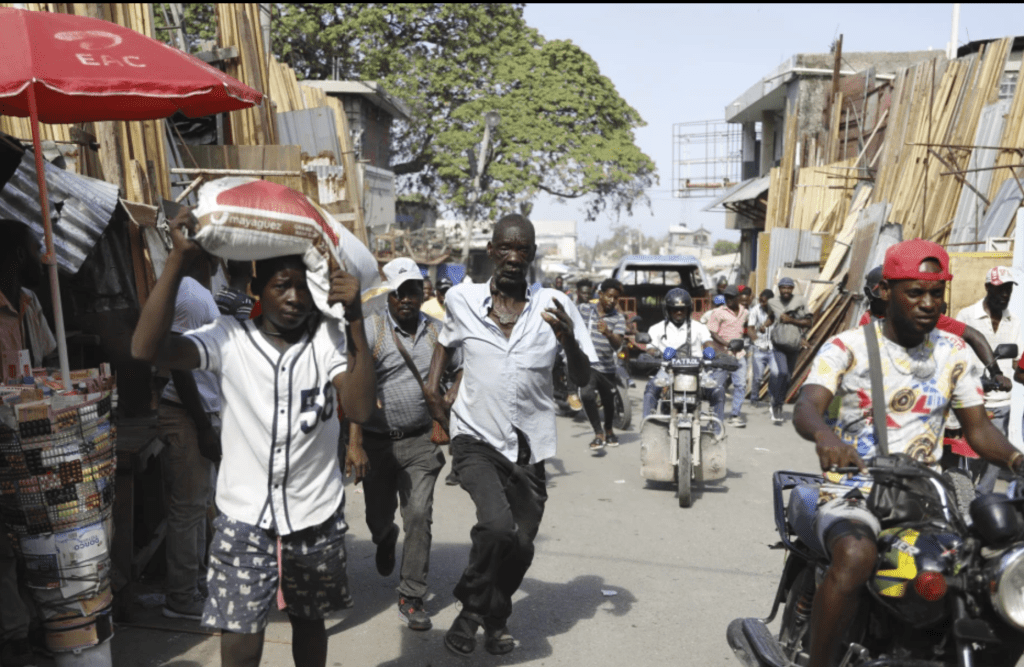
News reports regarding Haiti are rarely upbeat or optimistic. Too frequently, we only hear about Haiti’s problems with hunger, child labor, and poverty and very little about its valuable qualities.
Haiti became the world’s first sovereign Black republic after overthrowing Napoleon and the French colonists, who were utilizing slave labor to cultivate profitable crops on the island. At the Battle of Vertiéres at the end of 1803, the Haitian people succeeded in overthrowing the French and establishing their independence. Its triumphs are sadly underreported, and the nation’s extraordinary history is all too quickly forgotten.
Now, in the wake of escalating violence and political turmoil, Haiti finds itself engulfed in a deepening crisis that goes far beyond its borders. Almost three years after the assassination of President Jovenel Moïse, the Caribbean nation has plunged into a state of chaos marked by gang-led uprisings, the collapse of government authority and widespread insecurity. Elections, long overdue, remain elusive as the terms of all elected officials have expired since 2017, leaving a leadership vacuum that has fueled further unrest.
Amid this turmoil, the impact of Haiti’s crisis extends to communities well beyond its shores, including those in Houston, home to a significant Haitian diaspora. As Haitian Americans grapple with the news of escalating violence and instability in their homeland, organizations like Houston Haitian United continue their advocacy work as vital pillars of support. Founded to provide assistance and solidarity to the Haitian community in Houston and beyond, Houston Haitian United serves as a lifeline for individuals seeking refuge from the turmoil gripping their homeland.
To shed light on the intersection of Haiti’s crisis and its impact on Houston residents, we turn to the co-founders of Houston Haitian United, Jean Michel Celestin and James Pierre, whose firsthand experience and insights offer a glimpse into the challenges facing Haitian Americans and misperceptions of a nation that is often misconstrued.
Defender: Can you provide insight into the current crisis in Haiti?
Pierre: Currently, the situation has festered from about 10 years of backhand deals between Haitian politicians and other entities outside Haiti. For example, when Michel Martelly became the president of Haiti (2011-2016), there was a lot of interest in getting subsidized oil fuels into Haiti. The oil was coming from Venezuela. The US wasn’t a fan of [them]. There was a deal to subsidize oil prices so that gasoline could be more affordable for Haitian people, and the people would get a kickback, and there are questions about where that went. So, Jovenel Moise (former Haitian president 2017-2021) was an offspring of Michel Martelly’s government. The people weren’t happy with another term from that party because there was a lot of corruption. There were many things Jovenel was doing to uplift the country, and those things didn’t get discussed, but he had a different vision. The people who put him in power, he drifted away from them, and therefore, he became unfavorable and ultimately led to his assassination a few years ago. We’re dealing with a country without a government for three years.
Defender: What are people getting wrong about the conflict in Haiti?
Michel: In the US, we never get the full context of what goes on in Haiti. Just bits and pieces. Gang violence isn’t something driven by the general population. These groups were working for some higher power. Most of the guns you see are not coming from Haiti. They come from the US. Those guys can’t afford those kinds of military guns you see in the streets. Unfortunately, these members aren’t working. They cannot bring money to their families, so doing these wicked deeds for a few dollars will make sense, even with the Haiti earthquake. Guess who was in charge of gathering money? The US. They placed agencies responsible for collecting all this money, but where were those funds to fix the country afterward? The only ones suffering the consequences are the people because they didn’t suffer from it. The trust factor has been broken.
Defender: What are the prospects for restoring democratic governance and stability in the country?
Pierre: I want to point out that the world is seeing gang violence, but the gangs are going after the police. There’s a clip out there where the gangs have highly sophisticated technologies. I don’t condone gang violence, but the violence that’s going on is against law enforcement and whatever government is left. Their plight is that the country isn’t being run correctly by this defacto government that should have never existed. Ariel Henry (Acting Prime Minister) was not popular. The people wanted him out. He was supposed to give the people elections, which hasn’t happened. He went to Kenya (East Africa) to seek assistance, and the gangs forced his hand so he couldn’t return. There are people who I’ve seen who want to lead Haiti in the right direction and who are popular with the people. The people should decide who their next leader should be. If we don’t allow this to happen, we’ll be in this situation again 10 to 15 years from now.
Defender: How are Houston Haitian United and other organizations supporting Haitian communities in Haiti and Houston during this challenging time?
Pierre: We want the Houston community to know the beauty of our culture, music, food and businesses. On May 19, we’re going to have Haitian Flag Day. Our 10th anniversary is coming up next year. We have also stepped up our efforts during the migrant crisis at the border. We helped process many of our people coming from Mexico to help them feel comfortable. When you’re going through a traumatic journey, it is comforting to have someone who speaks your language and understands where you’re coming from.










